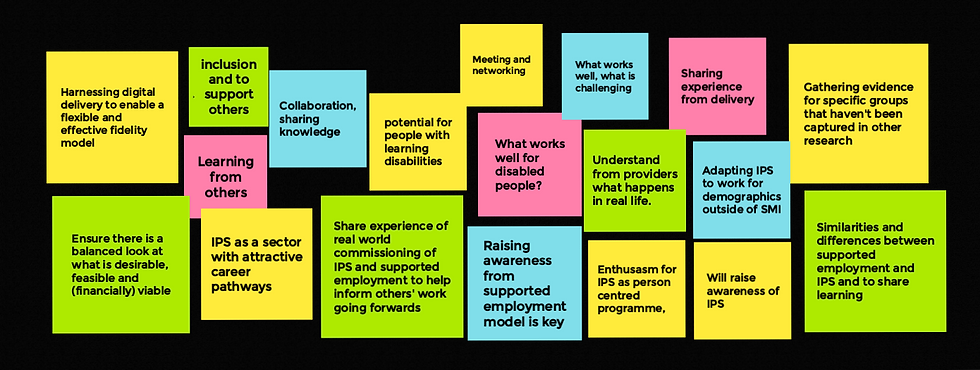Supported Employment beyond SMI
NIHR funded applied research to develop co-produced learnings, policy guidance and resources to support the development of Individual Placement and Support (IPS) and SEQF Supported Employment in population groups and settings beyond severe mental illness (SMI)

Research Motivations and Aims
Supported Employment is a model of employment support for individuals with disabilities, health conditions or other complex disadvantages to voluntarily move into paid work as part of their health management and recovery. Supported Employment is fidelity-based, values-based, evidence-based, and person-centred. There are two main fidelity models internationally: Individual Placement and Support (IPS) and the Supported Employment Quality Framework (SEQF). IPS operates to a fidelity scale designed originally around a severe mental health population group and setting. SEQF is tailored to support individuals with learning disabilities and autism.
Supported Employment is on the march. IPS is innovating to new settings and new population groups far beyond its 'traditional' use in severe mental illness: common mental health conditions, musculoskeletal conditions, substance issues as well as experiences of chronic pain, homelessness and the criminal justice system to name but a few. SEQF is formalising, spreading to new groups and countries, and scaling.
The UK is at the forefront of this international trend with several significant trials, pilots and services adopting IPS and SEQF Supported Employment approaches in a diverse range programmes, population groups and settings and at significant scale. This scaling and diverse innovation raises key questions, challenges and opportunities for both academic and policy understanding and practice around Supported Employment - both IPS and SEQF - in different population groups, setting and scales.
This project, funded by the National Institute for Health Research (NIHR), will provide new academic learning alongside practical policy guidance and resources to support improved Supported Employment policy making, service performance and user experiences in the future.
We're passionate about co-produced academic research that supports positive change for people and policy. Join us.
For more information please contact the project lead Professor Adam Whitworth, Professor of Employment Policy, Strathclyde Business School, University of Strathclyde
News & Events

